2015 - The Year of New Flaws in EU Architecture
Adelina Marini, December 30, 2015
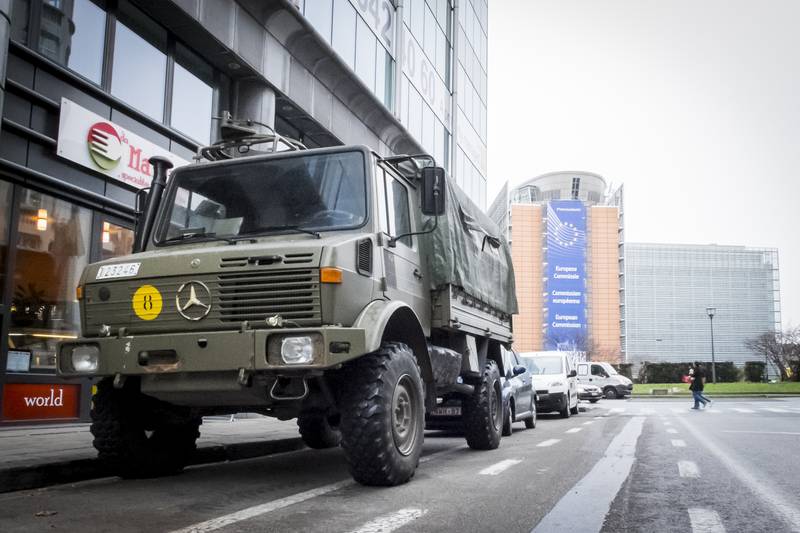 If in 2009 the global economic and financial crisis exposed gaps in the construction of the euro area, in 2015 the refugee crisis and terrorism exposed the lack of union in areas like security, external border policing, and once more, as with the euro area crisis, the lack of solidarity. The absence of EU in many spheres was the accent in the first State of the Union address of European Commission President Jean-Claude Juncker before the European Parliament, in which he stated that bells are tolling throughout the EU. The crisis in the euro area threatened its integrity on several occasions, but actually made it stronger. The refugee crisis, however, proved to be a much stronger disintegration force, putting for the first time in history on the agenda the question do we really need the EU, and if so, what should it be like. So euinside’s forecast for 2016 is that it will be the year of looking for an answer to this question, for according to Mr Juncker there is a straight connection between the euro area and Schengen. Again in the EP, in the end of November, he stated that the “single currency doesn't make sense if Schengen fails”.
If in 2009 the global economic and financial crisis exposed gaps in the construction of the euro area, in 2015 the refugee crisis and terrorism exposed the lack of union in areas like security, external border policing, and once more, as with the euro area crisis, the lack of solidarity. The absence of EU in many spheres was the accent in the first State of the Union address of European Commission President Jean-Claude Juncker before the European Parliament, in which he stated that bells are tolling throughout the EU. The crisis in the euro area threatened its integrity on several occasions, but actually made it stronger. The refugee crisis, however, proved to be a much stronger disintegration force, putting for the first time in history on the agenda the question do we really need the EU, and if so, what should it be like. So euinside’s forecast for 2016 is that it will be the year of looking for an answer to this question, for according to Mr Juncker there is a straight connection between the euro area and Schengen. Again in the EP, in the end of November, he stated that the “single currency doesn't make sense if Schengen fails”.
Disintegration forces vs. the integration ones
2015 created the feeling that the EU is already in the past and it is just a matter of time to officially sign and stamp its death certificate. Although it is true that disintegration forces seemed stronger this year, actually integration forces will prevail. The question that many member states need to find an answer for next year is on which process’s side they would rather be. Who were/are the disintegration forces in the EU? Greece, the Visegrad Group, Great Britain. And who were the integration forces in the EU? France, Germany, and Italy. In which spheres were disintegration forces strongest? Schengen and judicial cooperation. Where did the integration ones prevail? The euro area, national security, taxation policy, enlargement.
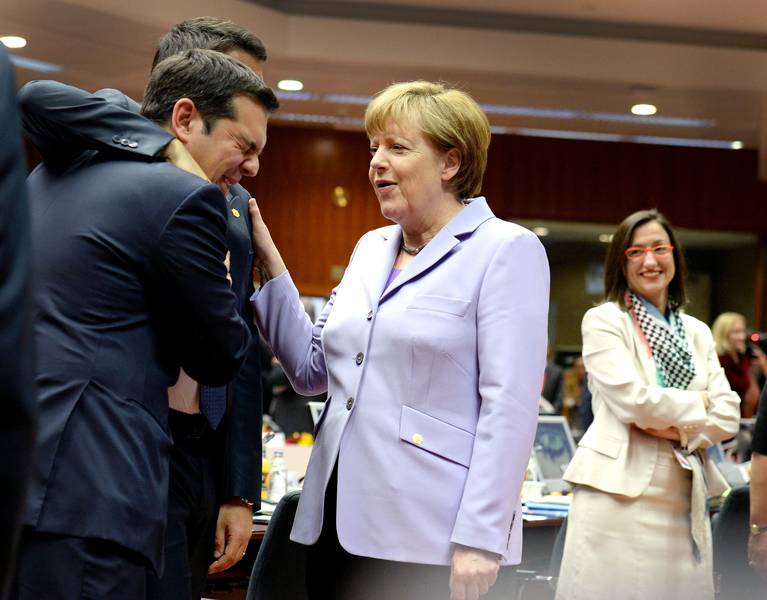 Greece gave the start of disintegration in the EU at the beginning of 2015 right after the inauguration of the first government of the European NO. Greek opportunistic/anti-European party of the protest SYRIZA won the parliamentary elections in Greece at the start of the year, putting a start to the decimation of the taboo that the euro area is irreversible and set a record for emergency Eurogroup meetings. By June there were quite open talks about the necessity of Greece leaving the currency club because of its systematic refusal to comply with the other 17 countries, bound by the common currency. The culmination of tension between Greece and the euro area was in the summer, when the third bailout programme was negotiated based on the ultimatum – either Athens accepts the conditions, or au revoir.
Greece gave the start of disintegration in the EU at the beginning of 2015 right after the inauguration of the first government of the European NO. Greek opportunistic/anti-European party of the protest SYRIZA won the parliamentary elections in Greece at the start of the year, putting a start to the decimation of the taboo that the euro area is irreversible and set a record for emergency Eurogroup meetings. By June there were quite open talks about the necessity of Greece leaving the currency club because of its systematic refusal to comply with the other 17 countries, bound by the common currency. The culmination of tension between Greece and the euro area was in the summer, when the third bailout programme was negotiated based on the ultimatum – either Athens accepts the conditions, or au revoir.
It came to this ultimatum after Greece reached new heights in avoiding reality – it played the democracy card by a badly organised referendum and new elections, which cemented SYRIZA’s power and that of Prime Minister Alexis Tsipras, but brought sizable changes, including the elimination of the main reason for breaking the taboo of the euro area’s integrity – finance minister Yanis Varoufakis, who turned into a symbol of the Greek alternate reality.
Contrary to popular belief that Viktor Orbán is in the centre of disintegration forces regarding the refugee crisis, actually the roots of the problem are in Greece again, who turned out to be incapable of protecting two borders simultaneously – the EU external border and the Schengen external border. And why two borders? Because Orbán made them two, backed by Slovenia, and also by Commission President Jean-Claude Juncker (see quotation above), who in this way put the foundations of a separation of the EU into several integration centres. Those are the euro area, Schengen, and the enhanced cooperation procedure. Just like it had its arm twisted into accepting the Troika’s proposals in order to receive the next life-saving injection of financial adrenaline, Greece was made to ask for the help it had stubbornly been refusing for the protection of its external border with Turkey, which this year was the main gate, through which the refugee wave flowed into the EU during the second half of the year.
On December 3rd, under pressure by member states, Greece officially asked for material support for dealing with refugees in the form of tents, generators, beds, sanitary supplies, and first aid kits. It also requested the aid of the European border agency Frontex for the protection of its border with Macedonia and the installation of a fast response team at the external border along the Aegean islands. Contrary to the Greek problems in the euro area the refugee situation is not just Greece’s fault. Moreover, Greece actually has the least fault in this situation. Greece, same as Italy, as beachheads for refugees and migrants to the EU, led a desperate struggle with the Dublin regulation, which states that responsibility for housing refugees falls to the frontline states, which need to do whatever is necessary to prevent “leakage” of refugees and migrants further into the Union..
Both states repeatedly asked for re-negotiation of the Dublin regulation, which had been changed repeatedly, namely because of the problems, which Greece and Italy made common by “opening the faucet” of refugees after not receiving the asked for solidarity from the others. Before the changes there was once more a reinstitution of border control in several member states and an exchange of sharp statements. Compared to 2015, however, the memories of 2011 are too pale, so the changes in Schengen legislation were more disintegration than integration ones. This year the lack of solidarity between member states regarding refugees created fertile land for the rebirth of racism, xenophobia, and hate 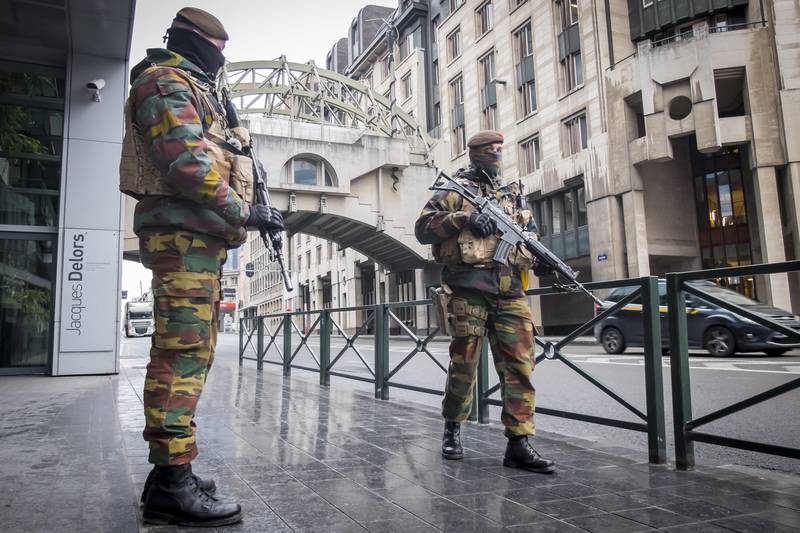 speech, and also for the tensioning of relations between neighbour states, some of which with recent history of armed conflicts.
speech, and also for the tensioning of relations between neighbour states, some of which with recent history of armed conflicts.
This danger mentioned by Jean-Claude Juncker and also by European Council President Donald Tusk of disintegration of the Union with very dire consequences gave a heavy boost to integration forces. At the December summit of the EU it was agreed that the EC should propose a plan for a reform of the Dublin regulation and the proposal for the creation of a common protection force for policing the EU’s external borders was agreed on. In the conclusions of the summit the leaders of the 28 member states urged for maximum speed in the review of the EC’s proposals from December 15th for the creation of a European border and coast guard with the position of the Council being supposed to be ready by June of next year. Many read this as a postponement of making a decision, but actually it is an extremely rapid reaction on a proposal, which is yet to gain legal outlook. It becomes clear from the conclusions that by June everything should be ready for giving the EC’s proposal legal form, which is a very quick reaction in the European time-space continuum.
Member states appointed the Commission to propose a new Schengen code as well. As it is usual after a major crisis member states acknowledged the problem and agreed to solve it. In this sense the words of German Chancellor Angela Merkel were symbolic, where she admitted that Schengen and Dublin were developed in other times and are not suitable for today’s situation. “I think one did not really look at any great detail how to protect the border in case of such an enormous flux of refugees”, she said at the end of the first day of the December summit. French President François Hollande also admitted that if common borders were not protected Europe would fall apart.
The Visegrad group – the Central-European Eurosceptic zone
2015 marked the consolidation of the Visegrad four, which unites the four former Communist Central-European states of Hungary, Poland, the Czech Republic, and Slovakia. Up until now cooperation between them was rather symbolic, but the refugee crisis acted as a mighty catalyst for their bonding. Following Hungary’s example, which under the leadership of its authoritarian PM Viktor Orbán took a sharp course towards resistance to the EU and after the Poland elections in October, which brought to power the Eurosceptic Law and Justice party of Jarosław Kaczyński, the four states began to agree separately on every subject on summits’ agenda. The consolidation of the group renewed the memory of the Berlin wall and separation between Eastern and Western Europe.
Although the four states have similar positions on many of the subjects on the EU’s agenda, there are subjects on which they are of quite opposite opinion. This became crystal clear during the rejection of the draft legislation for the settlement of property disputes between cross-border couples, including same-sex ones. The legislation was blocked by Poland and Hungary, while Slovakia and the Czech Republic showed surprise by their decision. On a number of other issues, however, the four states have close positions. This unleashed the discontent of member states, some of which established a new disintegration-integration force. At the eve of the December European Council Austrian Chancellor Werner Faymann proposed that countries who refuse solidarity have their European funds trimmed.
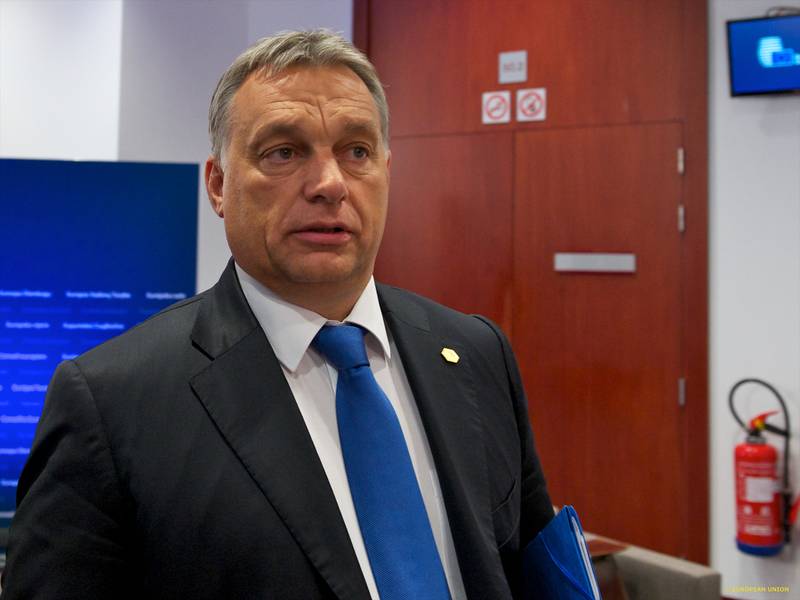
According to some this would be impossible for implementation, but an opportunity to check whether it really will be impossible will come in 2016 when the 7-year budget of the EU is supposed to be reviewed with an option for re-negotiation of funds in the main headings. It is certain from now that there will be sizable changes because of the refugees.
The British disintegration effort
Great Britain has been an independent source of disintegration in the EU this year. After four dreadful years for the nay-policy of British PM David Cameron the demands of Great Britain for remaining in the EU were finally presented officially. Regardless of whether they will be met or not there will be a referendum for the membership of the United Kingdom in the EU. From the debates led so far it becomes clear that Great Britain is one of the major hindrances to integration forces in the EU, so the referendum will be a relief to everybody – both on the island and on the continent as well.
Integration force awakens
The year was difficult to integration forces, but successful anyway, given the success of the disintegration ones. This year marks a new step towards deepening of euro area integration and its practical separation. In June the second road map for sharing more sovereignty in the zone of the common currency was presented. The report initially received far from ecstatic response, but the year ended with a promise for work on stage one, which will lay the foundations for the big step – changes in the EU treaty, making the euro area stronger and more unified. During the first stage the banking union will be completed with the building of its third pillar – the deposit guarantee scheme. Economic policy coordination between member states is to be deepened as well.
In order to put euro area integration in full speed, however, the effect of disintegration forces needs to be isolated. First of all the issue of the British referendum must be resolved. An agreement is expected to be reached by February on Britain’s demands for renegotiation of its relationship with the EU. French President François Hollande stated that what is negotiated for Britain must be such that it could be applied to other members, which want of the integration boat. This means serious changes are due for the EU, which would be unlocked by the solution of the British question. France, Germany, and Italy again were the main integration forces in the Union. Berlin and Paris, although in bad sync, see the future of the EU the same way – a deeper euro area integration. The two states once more took on the responsibility for the salvation and consolidation of the European Union during the second of its kind address of the leaders of France and Germany to the European Parliament. This could, however, change if the 2017 French presidential elections bring Marine Le Pen to power. A very slim chance of it at this point, but a possibility nonetheless.
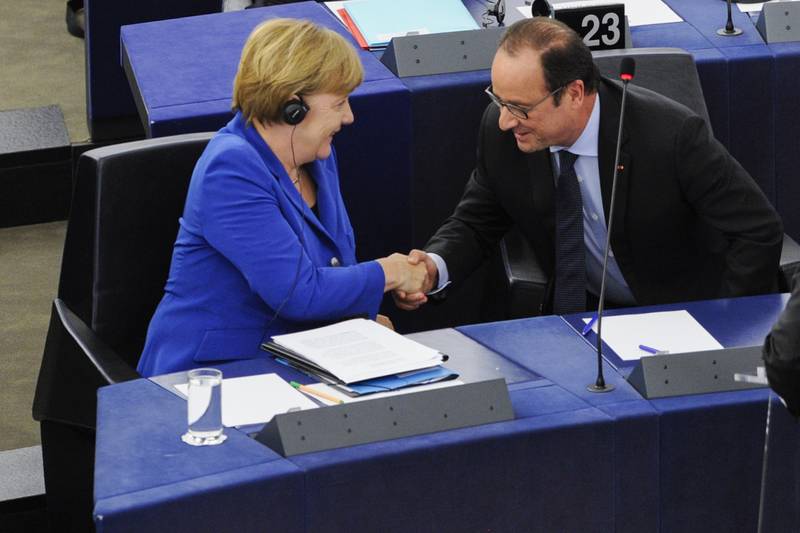 Italy has not been a very constructive integration force in the euro area, where it demanded loosening of fiscal rules because of the refugee crisis, which, although having grounds, would have a pro-crisis, if not disintegration effect. Rome, however, was a remarkably strong integration force in the negotiations for the creation of a common European Prosecutor’s Office, which is to investigate crimes with money from the European budget. Italy insisted all the time that a strong supranational Prosecution is established, which would prosecute not only budget crimes, but also cross-border organised crime, which Italy has ample experience with. Alas, Italy was rather alone on this dossier. Progress on the proposal is slow and the way is to a very weak institution. If it does however get established, it could be used as a stepping stone towards deepening integration when the time is right.
Italy has not been a very constructive integration force in the euro area, where it demanded loosening of fiscal rules because of the refugee crisis, which, although having grounds, would have a pro-crisis, if not disintegration effect. Rome, however, was a remarkably strong integration force in the negotiations for the creation of a common European Prosecutor’s Office, which is to investigate crimes with money from the European budget. Italy insisted all the time that a strong supranational Prosecution is established, which would prosecute not only budget crimes, but also cross-border organised crime, which Italy has ample experience with. Alas, Italy was rather alone on this dossier. Progress on the proposal is slow and the way is to a very weak institution. If it does however get established, it could be used as a stepping stone towards deepening integration when the time is right.
The Union has not matured yet to share sovereignty regarding the Judiciary. Most probably a serious crisis in this sphere is required for the integration in it to start moving as well. The first steps are already made due to the terrorist attacks in Paris at the beginning and the end of the year. As is traditional, steps are rather small, but they are in the direction of integration.
A key event to integration forces in the EU during 2015 was the awakening of its enlargement. Again a heavy crisis was needed for that. Bosnia and Herzegovina set foot on the European path with the unfreezing of the association agreement. This happened thanks to Europe’s scare of the memory from the war in Bosnia and Herzegovina from the early 1990’s. This scare came from mass protests in the country that helped the EU mature to a change of attitude to the Dayton state. Serbia and Turkey also boarded the enlargement train, which had been parked on a dead-end track in 2014.
Turkey opened its first negotiation chapter for years thanks to the refugee crisis and Serbia opened its first two chapters also as a gesture of gratitude for the way Serbian authorities handled the refugee flows, but also because of the geopolitical situation. Neither the refugee crisis, however, nor the home political crisis were strong enough to unblock 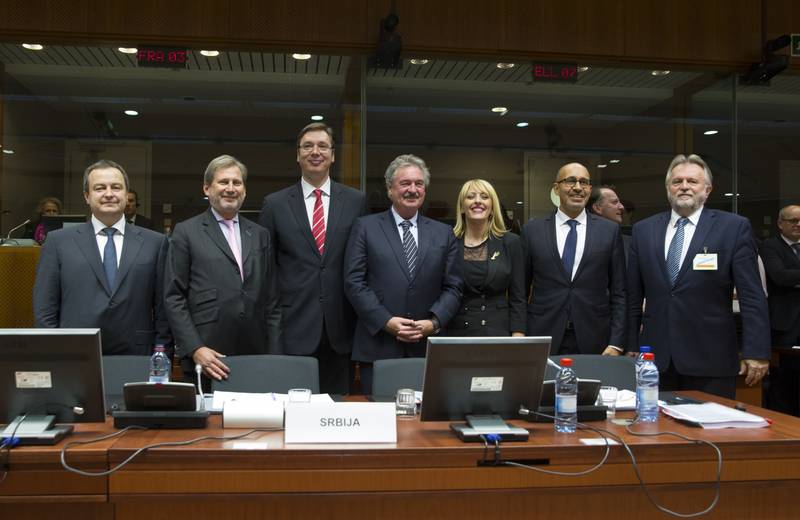 the European way for Macedonia, which remains a constantly made mistake of the EU. The Western Balkans in general assumed their due position on the EU agenda. As the saying goes, however – it could be better.
the European way for Macedonia, which remains a constantly made mistake of the EU. The Western Balkans in general assumed their due position on the EU agenda. As the saying goes, however – it could be better.
A weaker integration force awoke in the EU this year as well – the enhanced cooperation procedure. This is a possibility, given by the EU Treaty to states that wish a deepening of cooperation in a certain sphere. As 2015 showed this is an instrument allowing avoidance of disintegration forces. Two procedures rose to the horizon this year. The first one is the revival of the procedure of enhanced cooperation on the establishment of a Financial Transactions Tax. Ten member states will participate in it. The second one is due to open next year after Hungary and Poland blocked the common European legislation for settlement of property disputes between cross-border couples. It becomes clear from all discussions held up until now that all others will join the procedure, which will circumvent Budapest and Warsaw’s resistance.
2015 was the next in a row of crisis years in European history, which, when viewed in the European context, however, is good news. Crises by tradition breed more EU, for the alternative, which British (and not only) Eurosceptics do not see, is disintegration, and disintegration means conflict. Today the EU more than ever continues to be a peace project, but the moment is ripe for the answer to the question “Who is with us?” to be demanded. Whoever isn’t must disembark.
Translated by Stanimir Stoev
 Federica Mogherini | © Council of the EU
Federica Mogherini | © Council of the EU | © Council of the EU
| © Council of the EU Luis De Guindos | © Council of the EU
Luis De Guindos | © Council of the EU